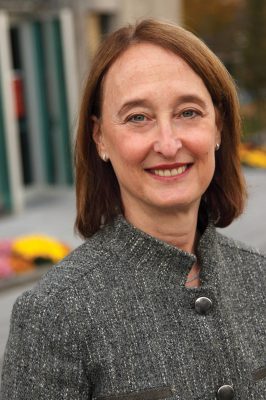Message from Dr. Rose Goldstein, Vice-Principal (Research and International Relations)

Aging touches everyone’s life in profound ways. When I returned to Montreal from Calgary in 2010 to become VP (RIR) at McGill, I quite literally moved back home, temporarily taking up residence with my elderly parents. This was a learning experience, as I saw first-hand their needs in terms of their health, mobility and care. I learned from my parents that it’s the little things, particularly related to the social environment, that can make a big difference. For example, seeing how they have embraced technology to communicate and maintain their social relationships has been wonderful. As researchers, we need to focus our efforts just as much on these small yet impactful innovations as on the “big problem” of aging itself.
Which is not to underestimate just how “big” this aging problem is. We may not be getting any younger, but we are living longer. Heart disease, cancer, AIDS and other afflictions are no longer the automatic death sentences they once were, but as we prolong life, other challenges become more prevalent, including degenerative diseases, dementia and social problems. These challenges are going to be shared by an unprecedented number of Canadians, too, as our oldest demographics exponentially swell with golden age baby boomers. There’s nothing new about getting old, but aging is most definitely a subject that is taking on increased urgency — and so it is the focus of this issue of Headway.
I can’t imagine a topic that better captures McGill’s interdisciplinary research spirit. Our world-class researchers continue to pursue innovations, whether they are technological, scientific, or social, with an insatiable passion and resolve. These pages highlight just some of the University’s widereaching efforts to mediate the ravages of time. Our researchers are working to mitigate the effects of cognitive disorders, and to understand the cellular workings of the aging process. They’re trying to strengthen aging bones, and to bolster weakened hearts. And, importantly, they’re connecting with the people they want to help, to improve the quality of life for Canadians across the country — and, indeed, for seniors around the world.
I sometimes think about what my parents’ life would be like if they didn’t have their children and extended family and friends to offer them our love, support and guidance. We are lucky to have a McGill geriatric medicine specialist in the family! As people have fewer children, and as adult family members are less likely to live near their parents, their built-in support systems are smaller, and the responsibility for the welfare of the elderly falls to others in society. The old adage says that it takes a village to raise a child. Doesn’t it make sense that it also takes a village to support an elder?
McGill is proud to be part of the village of support. It is through research, the very kind that happens at McGill, that we can solve problems like these, and share our discoveries with our partners in government, industry, health care, non-profit and academia around the world.
